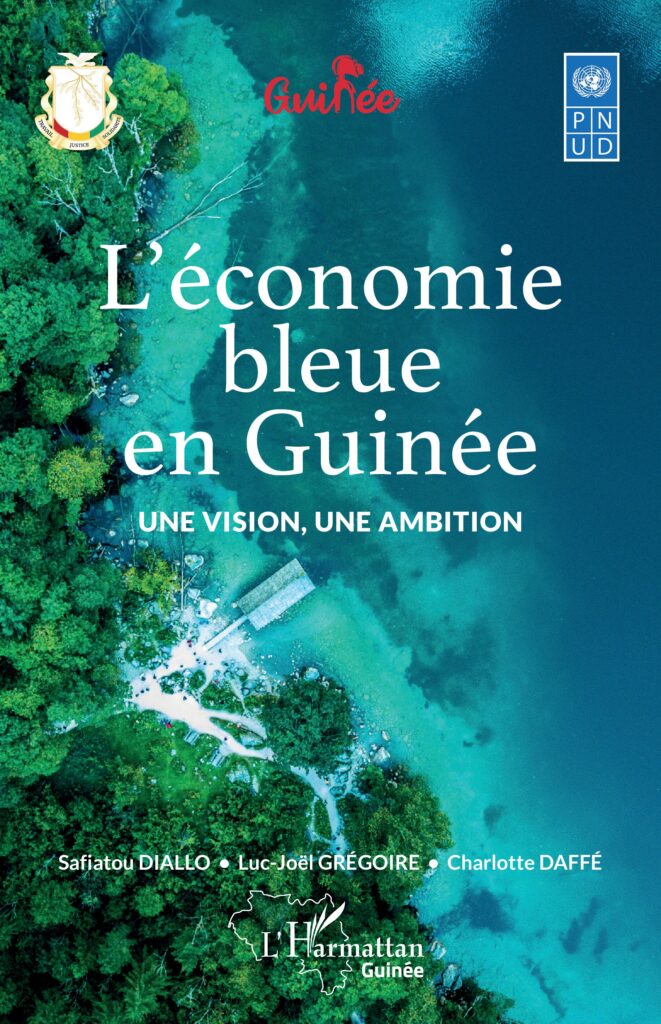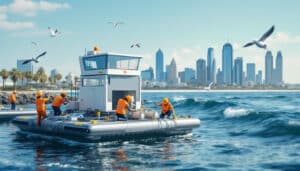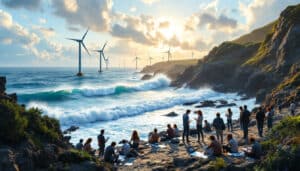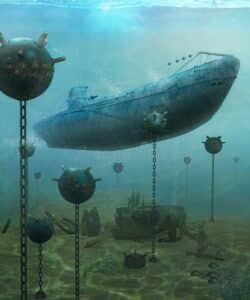The blue economy represents an innovative and sustainable approach that promotes maritime resources while preserving the ocean environment. By integrating sustainability principles into sectors such as fishing, aquaculture, shipping and coastal tourism, it offers solutions to meet our needs while protecting marine ecosystems. Faced with the challenges of climate change and the degradation of natural resources, the blue economy is becoming essential to ensure balanced and sustainable development. It invites us to rethink our relationship with the seas and oceans, placing innovation and conservation at the heart of our economic future.
Table of Contents
ToggleThe importance of the blue economy
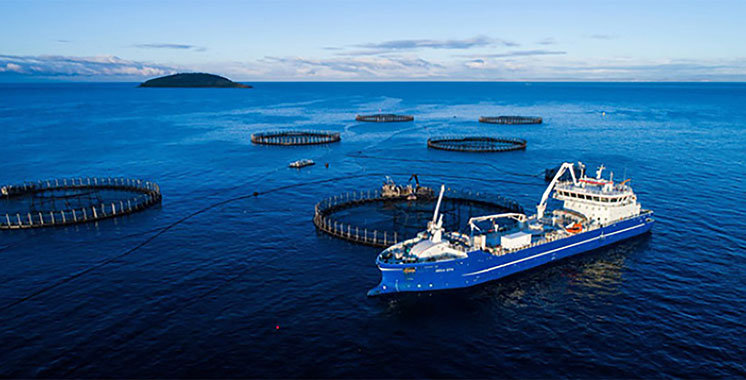
L’blue economy refers to all economic activities linked to oceans, to seas and areas coastal. This includes traditional sectors such as fishing and theaquaculture, as well as emerging industries likerenewable marine energy, there marine biotechnology and the coastal tourism.
The oceans cover more than 70% of the Earth’s surface and represent enormous economic potential. The blue economy already contributes billions of euros to global economies each year. It also offers opportunities for job creation and the development sustainable.
Protecting and enhancing marine resources is crucial. The oceans play a vital role in climate regulation, L’absorption of CO2 and the production of 50% oxygen that we breathe. However, they are threatened by factors such as overfishing, there pollution plastic and climate change.
To promote a sustainable blue economy, measures must be taken to protect marine ecosystems and ensure responsible exploitation. This may include:
- To strenghten fisheries management regulations and policies.
- Investing in environmentally friendly technologiesenvironment.
- Improve management of marine protected areas.
- Support local and community initiatives.
By adopting an integrated and sustainable approach, the blue economy can not only contribute to economic growth but also to the protection of our planet for future generations.
Supporting the sustainability of maritime resources
The blue economy is a concept based on the sustainable use of oceans, seas and coasts. It aims to promote economic growth, improved livelihoods and the preservation of the health of marine ecosystems. With a planet that is 71% water, exploiting these vast maritime resources responsibly is essential for our future. Key sectors include fishing, aquaculture, coastal tourism, maritime transport and marine renewable energy.
Global initiatives are underway to encourage the transition to a blue economy. These initiatives focus on reduction of marine pollution, sustainable fisheries management, and the development of offshore wind energy. Additionally, there are programs to restore marine habitats, such as mangroves and coral reefs, which play a crucial role in defending against climate change.
To support the sustainability of maritime resources, several actions should be considered:
- Promote responsible fishing practices to avoid overfishing and preserve endangered species.
- Invest in clean technologies to reduce CO2 emissions from ships.
- Encourage the recycling of plastics to reduce ocean pollution.
- Strengthen maritime regulations and policies to protect critical habitats.
The oceans offer enormous economic opportunities, but their exploitation must be balanced with conservation measures. A well-managed blue economy can provide jobs, ensure food and energy security, while preserving marine ecosystems for future generations. Respect for sustainable practices is therefore at the heart of this approach, in order to guarantee a prosperous and beneficial future for our blue planet.
Driving innovation and economic growth
L’blue economy refers to the sustainable use of marine resources to stimulate the economic growth, improve the livelihood and ensure the health of ocean ecosystems. This approach integrates various industries such as fishing, L’aquaculture, THE coastal tourism, and the marine renewable energies.
The importance of the blue economy
THE oceans cover more than 70% of the Earth’s surface and play a crucial role in regulating the climate, the supply of food and the support of the biodiversity. By adopting sustainable practices, the blue economy aims to protect these vast resources while meeting global economic needs.
Driving innovation and economic growth
The blue economy encouragesinnovation in key areas such as:
- There marine technology, for the exploration and exploitation of marine resources.
- THE green technologies, to reduce the environmental impact of human activities at sea.
- THE biotechnology marine, to develop new health products and solutions.
By promoting innovation, the blue economy creates jobs and stimulates the economic growth while promoting the environmental sustainability.

